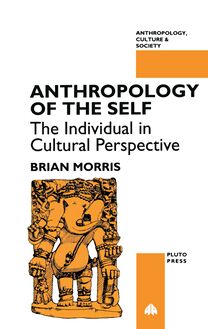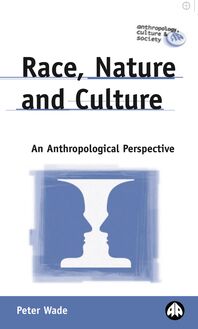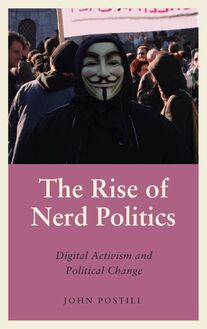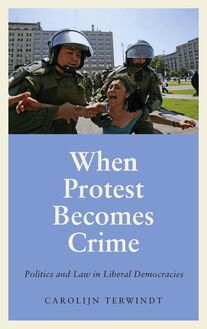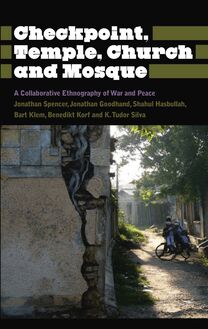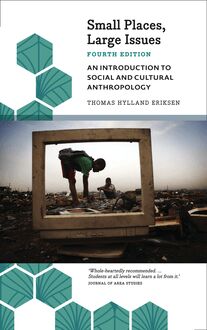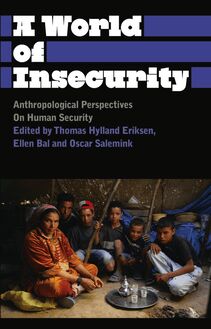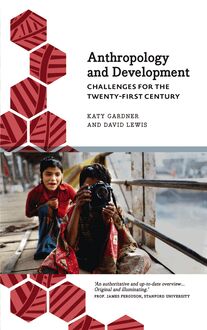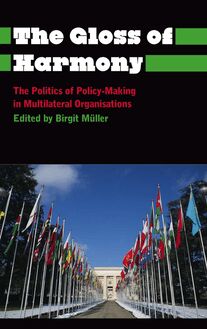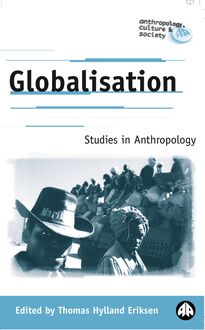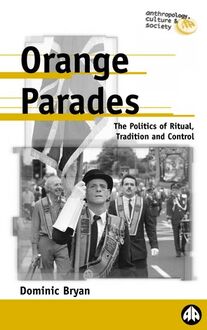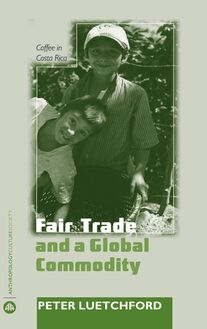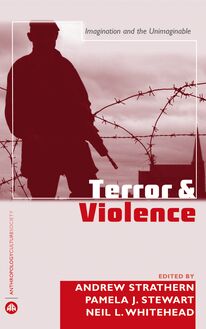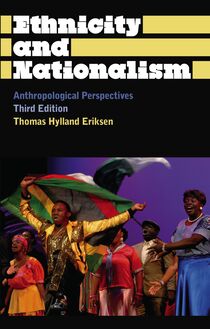-
 Univers
Univers
-
 Ebooks
Ebooks
-
 Livres audio
Livres audio
-
 Presse
Presse
-
 Podcasts
Podcasts
-
 BD
BD
-
 Documents
Documents
-
- Cours
- Révisions
- Ressources pédagogiques
- Sciences de l’éducation
- Manuels scolaires
- Langues
- Travaux de classe
- Annales de BEP
- Etudes supérieures
- Maternelle et primaire
- Fiches de lecture
- Orientation scolaire
- Méthodologie
- Corrigés de devoir
- Annales d’examens et concours
- Annales du bac
- Annales du brevet
- Rapports de stage
La lecture à portée de main
Vous pourrez modifier la taille du texte de cet ouvrage
Découvre YouScribe en t'inscrivant gratuitement
Je m'inscrisDécouvre YouScribe en t'inscrivant gratuitement
Je m'inscrisEn savoir plus
Vous pourrez modifier la taille du texte de cet ouvrage
En savoir plus

Description
The trouble with 'community' is that this is not necessarily so; the personal social networks of individuals' actual experience crosscut collective categories, situations and institutions. Communities can prove unviable or imprisoning; the reality of community life and identity can often be very different from the ideology and the ideal.
In this book, the authors draw on their ethnographic experiences to reappraise the concept and the reality of 'community', in the light of globalisation, religious fundamentalism, identity politics, and renascent localisms. How might anthropology better apprehend social identities which are intrinsically plural, transgressive and ironic? What has anthropology to say about the way in which civil society might hope to accommodate the ongoing construction and the rightful expression of such migrant identities?
Prologue: The Book's Questions
1. An Anthropology Without Community?
2. The Truth of Movement, the Truth as Movement: 'Post-cultural anthropology' and Narrational Identity
3. Dialogue: Movement, Identity and Collectivity
References
Index
Sujets
Informations
| Publié par | Pluto Press |
| Date de parution | 20 août 2002 |
| Nombre de lectures | 0 |
| EAN13 | 9781783715282 |
| Langue | English |
Informations légales : prix de location à la page 0,1850€. Cette information est donnée uniquement à titre indicatif conformément à la législation en vigueur.
Extrait
THE TROUBLE WITH COMMUNITY
Anthropology, Culture and Society
Series Editors:
Professor Thomas Hylland Eriksen, University of Oslo Dr Katy Gardner, University of Sussex Dr Jon P. Mitchell. University of Sussex
Land, Law and Environment: Mythical Land, Legal Boundaries Edited by A LLEN A BRAMSON AND D IMITRIOS T HEODOSSOPOULOS
Anthropology and the Will to Meaning: A Postcolonial Critique V ASSOS A RGYROU
The War of Dreams: Exercises in Ethno-Fiction M ARC A UGÉ
Orange Parades: The Politics of Ritual, Tradition and Control D OMINIC B RYAN
Identity and Affect: Experiences of Identity in a Globalising World Edited by J OHN R. C AMPBELL AND A LAN R EW
Risk Revisited Edited by P AT C APLAN
Women of a Lesser Cost: Female Labour, Foreign Exchange and Philippine Development S YLVIA C HANT AND C ATHY M CILWAINE
Macedonia: The Politics of Identity and Difference Edited by J ANE K. C OWAN
Ethnicity and Nationalism: Anthropological Perspectives T HOMAS H YLLAND E RIKSEN
A History of Anthropology T HOMAS H YLLAND E RIKSEN AND F INN S IVERT N IELSON
Small Places, Large Issues: An Introduction to Social and Cultural Anthropology T HOMAS H YLLAND E RIKSEN
Life on the Outside: The Tamil Diaspora and Long-Distance Nationalism Ø IVIND F UGLERUD
Anthropology, Development and the Post-modern Challenge K ATY G ARDNER AND D AVID L EWIS
Power and its Disguises: Anthropological Perspectives on Power J OHN G LEDHILL
Anthropological Perspectives on Kinship L ADISLAV H OLY
Youth and the State in Hungary: Capitalism, Communism and Class L ÁSZLÓ K ÜRTI
Locating Cultural Creativity Edited by J OHN L IEP
Cord of Blood: Possession and the Making of Voodoo N ADIA L OVELL
Anthropology of the Self: The Individual in Cultural Perspective B RIAN M ORRIS
New Directions in Economic Anthropology S USANA N AROTZKY
Ethnography and Prostitution in Peru L ORRAINE N ENCEL
Witchcraft, Power and Politics: Exploring the Occult in the South African Lowveld I SAK A. N IEHAUS with E LIAZAAR M OHLALA AND K ALLY S HOKANE
Anthropology and Cultural Studies Edited by S TEPHEN L. N UGENT AND C RIS S HORE
Social Mobility in Kerala: Modernity and Identity in Conflict F ILIPPO O SELLA AND C AROLINE O SELLA
Bearing Witness F IONA C. R OSS
Race, Nature and Culture: An Anthropological Perspective P ETER W ADE
Being There: Fieldwork in Anthropology Edited by C. W. W ATSON
Human Rights, Culture and Context: Anthropological Perspectives Edited by R ICHARD A. W ILSON
THE TROUBLE WITH COMMUNITY
Anthropological Reflections on Movement, Identity and Collectivity
V ERED A MIT AND N IGEL R APPORT
First published 2002 by PLUTO PRESS 345 Archway Road, London N6 5AA
www.plutobooks.com
Copyright © Vered Amit and Nigel Rapport 2002
The right of Vered Amit and Nigel Rapport to be identified as the authors of this work has been asserted by them in accordance with the Copyright, Designs and Patents Act 1988.
A catalogue record for this book is available from the British Library
A catalogue record for this book is available from the Library of Congress
ISBN 978 0 7453 1746 5 paperback ISBN 978 1 7837 1528 2 ePub ISBN 978 1 7837 1530 5 Mobi
10 9 8 7 6 5 4 3 2 1
Designed and produced for Pluto Press by Chase Publishing Services, Fortescue, Sidmouth EX10 9QG Typeset from disk by Stanford DTP Services, Towcester
Printed on demand in the EU by CPI Antony Rowe, Chippenham and Eastbourne, England
CONTENTS Prologue: The Book’s Questions Nigel Rapport and Vered Amit PART I AN ANTHROPOLOGY WITHOUT COMMUNITY? Vered Amit 1 . Anthropology and Community: Some Opening Notes 2 . Embracing Disjunction 3 . The Trouble with Community Notes References PART II THE TRUTH OF MOVEMENT, THE TRUTH AS MOVEMENT: POST-CULTURAL ANTHROPOLOGY AND NARRATIONAL IDENTITY Nigel Rapport Preamble 4 . Introduction: A Theory of Movement 5 . Incommensurability: Politics or Law? 6 . Educating for Liberal Democracy 7 . The Ironization of Liberal Democracy 8 . Human Rights and Liberal Democracy 9 . Universalism and Relativism in the Global Ecumene 10 . Existential Anthropology 11 . Existential Politics Notes References PART III DIALOGUE: MOVEMENT, IDENTITY AND COLLECTIVITY Vered Amit and Nigel Rapport 12 . Vered Amit Responds to Nigel Rapport 13 . Nigel Rapport Responds to Vered Amit References Index
to Aiden and to Callum, our nascent migrants of identity
PROLOGUE: THE BOOK’S QUESTIONS
Nigel Rapport and Vered Amit
This book is a dialogue between two anthropologists; it concerns the conceptualization, the ideology and the practice of community in the contemporary world. All three of these dimensions of community involve a tension between efforts to fix social and political relations in communal frames and the considerable pressures toward individuation and fragmentation which regularly undo these efforts, but may also be constrained by them. The book offers a review and a reassessment of community as a political, legal, theoretical and ethnographic concept within anthropology.
As the new century begins, politico-economic restructuring continues further to embed local economies, economic networks and polities within global systems of production and labour and within transnational systems of law and political identity. The relation between work, place and family is reconfigured, new forms of mobility within and across state borders are precipitated, and new discourses concerning international relations – ‘subsidiarity’, ‘asylum seekers’, ‘human rights’ – are construed. These processes have frequently dislocated the conventional connections between individuals and taken-for-granted institutions and collectivities. Yet we also see in many parts of the world, popular and intellectual discourses of identity that insist on the political and ontological primacy of various forms of community. While capital moves with ever greater speed and freedom across state borders, while international law expands its translocal remit, migrants frequently face renewed barriers to their own movements. While the ‘postmodern turn’ in anthropology has rejected the fixity of expertise, place and boundaries, this does not appear to have dislodged a conventional expectation that the construction of community and culture – of ‘cultural community’ – will continue to situate both the ethnographic enterprise and its ethnographic subjects, perhaps all the more so when these are no longer fixed conveniently in singular places.
Our efforts as co-authors, as two anthropologists of modernity, is to grapple with these complexities in this book; in the process we bring to bear a range of ethnographic expertise and a variety of theoretical perspectives. We do not expect to provide a single answer or one way of properly looking at the issues involved. Rather, we propose an authorial dialogue that engages multiple vantage-points and brings into juxtaposition the different ways in which we have sought to situate and adjust our anthropological fieldwork, analyses and broader moral gaze to the unstable contrivances of community in a world of movement.
The dialogue is organized around a set of questions which, in their separate sections of the book and in their different ways, both authors set out to address: 1. How do people conceive of community and work towards effecting its continued existence – to the extent that they do – in a world of movement? 2. Given that ‘fieldwork’ and ‘the field’ have been traditionally conceived of in anthropology as pertaining to places fixed in time and/or space, how should anthropology reconceptualize its data, reconceptualize the conditions of being of its informants, in a world of migrant identities? 3. Given the history of ‘community’ as an analytical construct, and the political valency it currently enjoys under the aegis of ‘communitarianism’ (of ‘identity polities’), how should anthropology employ the term in future? 4. Inasmuch as ‘society’ and ‘culture’ and the processes, practices, institutions, forces and structures which they have been seen to embody, were traditionally conceived of as fixing individuals, their behaviours and cognitions, within certain systems of signification, classification and identity, how is anthropology theoretically to approach a world characterized by plurality, transgression and irony concerning socio-cultural identities? 5. Inasmuch as a world of movement brings together a plurality and diversity of identities – and, more precisely, their individual proponents – what has anthropology to say, pragmatically, politically and morally, concerning the way in which a civil society might hope to accommodate, and constitute a secure environment for, the ongoing construction and the rightful expression of such identities? 6. In the wake of a postmodern critique of objective knowledge – a calling into question of rationality, of technical expertise, of disinterested language, of knowledge with any claims to singular authority and transcendence – how should anthropology now situate and conceive of its project: as merely one kind of narrative, evolving discourse or rhetoric, situated among a host of contesting kinds in the world, or still as a something more – a science of the human condition?
In fine, this book provides an investigation into the ways in which anthropology might engage, theoretically, ethnographically, politically, morally, with what might be described as its perennial theme – individuals vis-à-vis communities – in a world of movement which calls into question the erstwhile seeming fixities of its disciplinary identity: ‘culture’ and ‘society’.
ACCORDING TO VERED AMIT
Part I of the book is entitled ‘An Anthropology without Community?’. In recent years, Amit observes, anthropologists have been increasingly willing to accept the ‘loss of place as a dominant metaphor for culture’ (Olwig and Hastrup, 1996: 7). But would they prove as willing to give up the anchorage o
-
 Univers
Univers
-
 Ebooks
Ebooks
-
 Livres audio
Livres audio
-
 Presse
Presse
-
 Podcasts
Podcasts
-
 BD
BD
-
 Documents
Documents
-
Jeunesse
-
Littérature
-
Ressources professionnelles
-
Santé et bien-être
-
Savoirs
-
Education
-
Loisirs et hobbies
-
Art, musique et cinéma
-
Actualité et débat de société
-
Jeunesse
-
Littérature
-
Ressources professionnelles
-
Santé et bien-être
-
Savoirs
-
Education
-
Loisirs et hobbies
-
Art, musique et cinéma
-
Actualité et débat de société
-
Actualités
-
Lifestyle
-
Presse jeunesse
-
Presse professionnelle
-
Pratique
-
Presse sportive
-
Presse internationale
-
Culture & Médias
-
Action et Aventures
-
Science-fiction et Fantasy
-
Société
-
Jeunesse
-
Littérature
-
Ressources professionnelles
-
Santé et bien-être
-
Savoirs
-
Education
-
Loisirs et hobbies
-
Art, musique et cinéma
-
Actualité et débat de société
- Cours
- Révisions
- Ressources pédagogiques
- Sciences de l’éducation
- Manuels scolaires
- Langues
- Travaux de classe
- Annales de BEP
- Etudes supérieures
- Maternelle et primaire
- Fiches de lecture
- Orientation scolaire
- Méthodologie
- Corrigés de devoir
- Annales d’examens et concours
- Annales du bac
- Annales du brevet
- Rapports de stage
